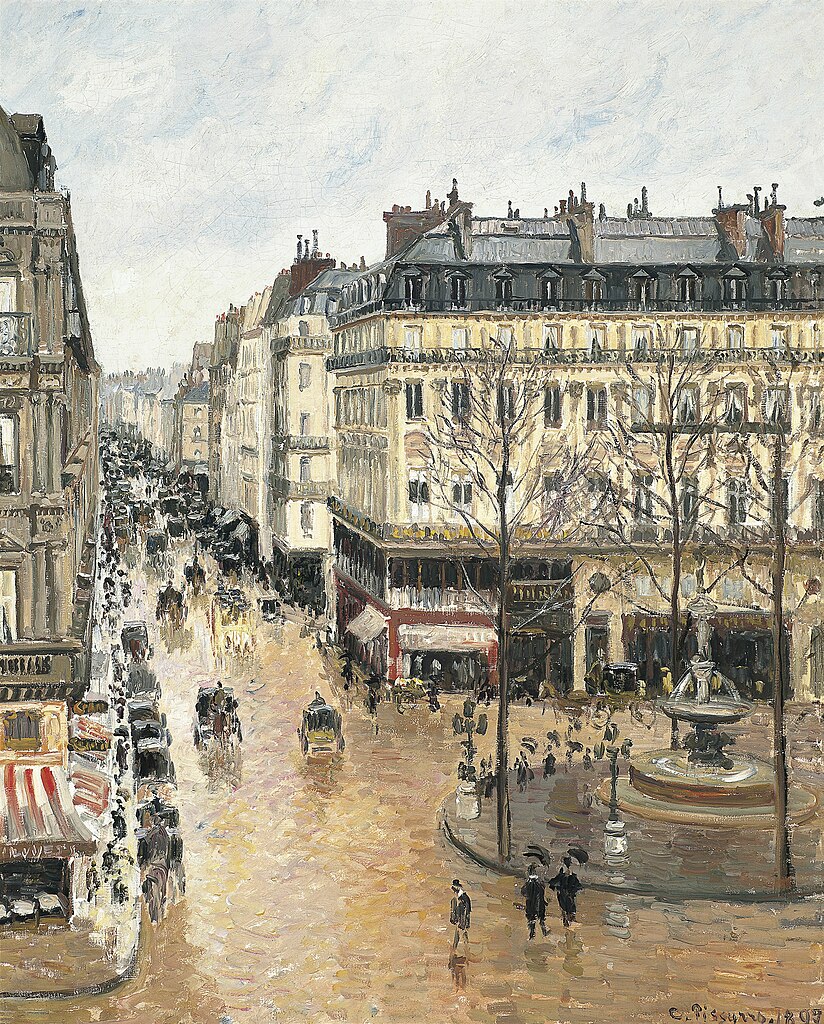California lawmakers have introduced a bill to give Holocaust survivors and their heirs a better chance to recover artwork stolen or forcibly sold during periods of political oppression.
Assemblyman Jesse Gabriel (D-Encino), chairman of the California Legislative Jewish Caucus, which chaired the legislative session, said. Los Angeles Times Madrid’s Thyssen-Bornemisza Museum was inspired by a ruling this January that decided it could keep a Camille Pissarro painting taken from its Jewish owner by the Nazi party.
“I immediately felt that this was a great opportunity for me to correct a historical injustice and prevent something like this from happening again,” Gabriel said. “With respect, we believe the 9th Circuit got it wrong, and this law will make that clear.” He added that the bill has bipartisan support.
Pissarro’s case closely followed, title Street Saint Honore, evening, rain effect (Rue Saint Honore, Afternoon, Rain Effect) and depicting a rainy Parisian street, has bounced around California courts for nearly two decades as the heirs of Lilly Cassirer Neubauer have defended its recovery.
Cassirer Neubauer was forced by the Nazi party to sell the painting in 1939 for 900 Reichsmarks (about $360 today) in exchange for a visa to flee Germany. According to court documents, he never received payment. The painting was acquired in 1993 by the Thyssen-Bornemisza Museum from the collector baron Hans Heinrich Thyssen-Bornemisza. Cassirer Neubauer’s heirs alleged in the initial complaint filed in 2005 that the museum knew that it had been forced to sell the work when it acquired it.
The legal saga was started by Cassirer Neubauer’s grandson, Claude Cassirer, who in 2001, after learning of its location in the museum, asked for its return. Unwilling to part with the painting, the museum sued. Cassirer, however, died in 2010, leaving the claim to his son David, his daughter Ava’s estate and the United Jewish Federation of San Diego County.
A 2019 trial decision by U.S. District Judge John F. Walter found that the Thyssen-Bornemisza Collection did due diligence in acquiring the paintings and had no knowledge of Nazi involvement.
The January 2024 ruling supported this sentiment. Circuit Judge Carlos Bea noted that Spain’s intentions to provide “certainty of title” to its arts organizations exceeded California’s interests in discouraging looting and obtaining restitution for its residents. As a result, Bea wrote in the ruling, Spanish law must apply to the proceedings, as the museum exhibited the work in good faith for eight years before the 2005 complaint was filed.
The Cassirer family is appealing the 9th Circuit ruling, and praised the proposed bill.
“It is very important that our laws restore this work of art that was stolen so long ago to the victims of the Holocaust and their heirs,” said David. “I’m grateful.”



